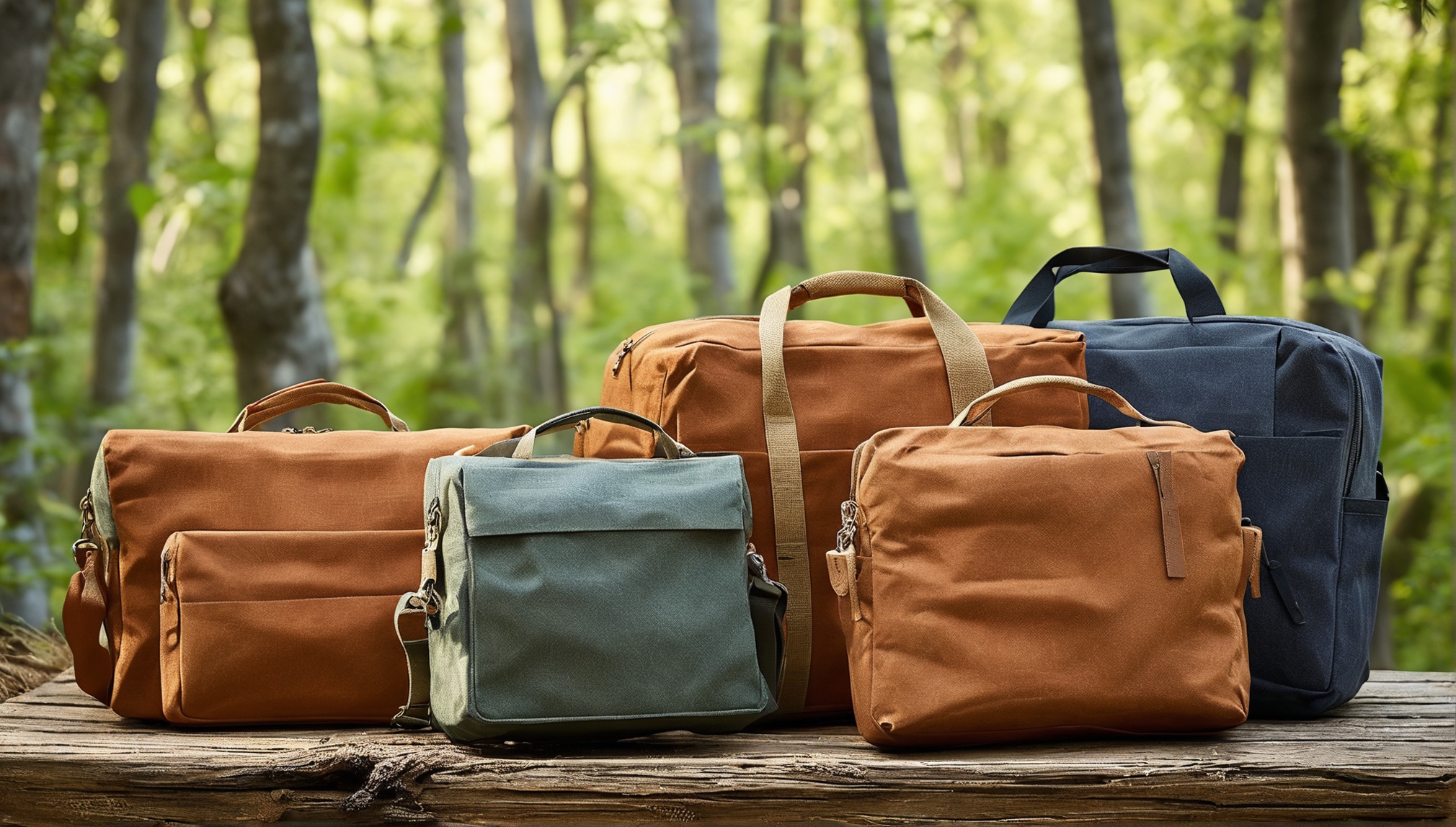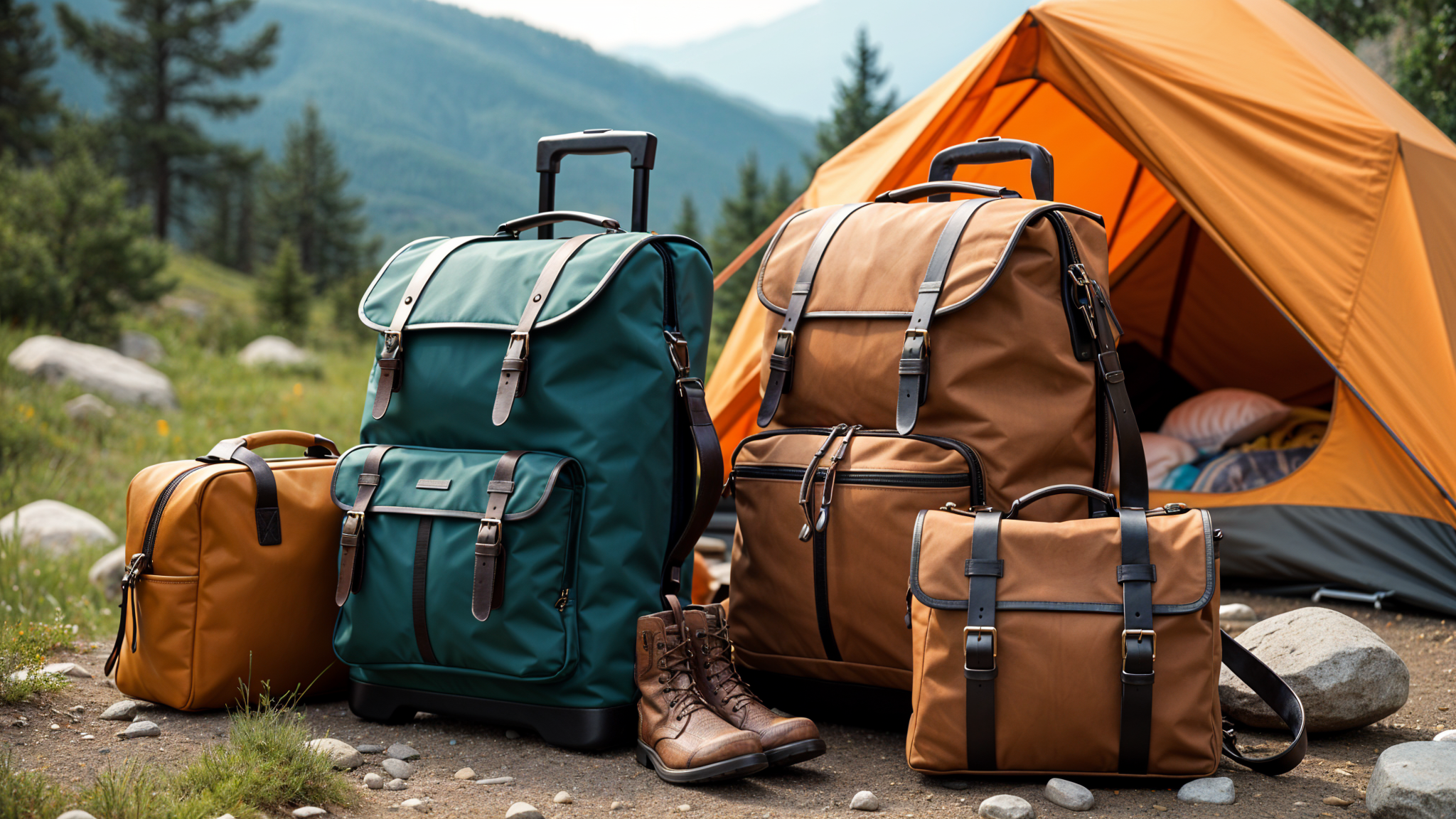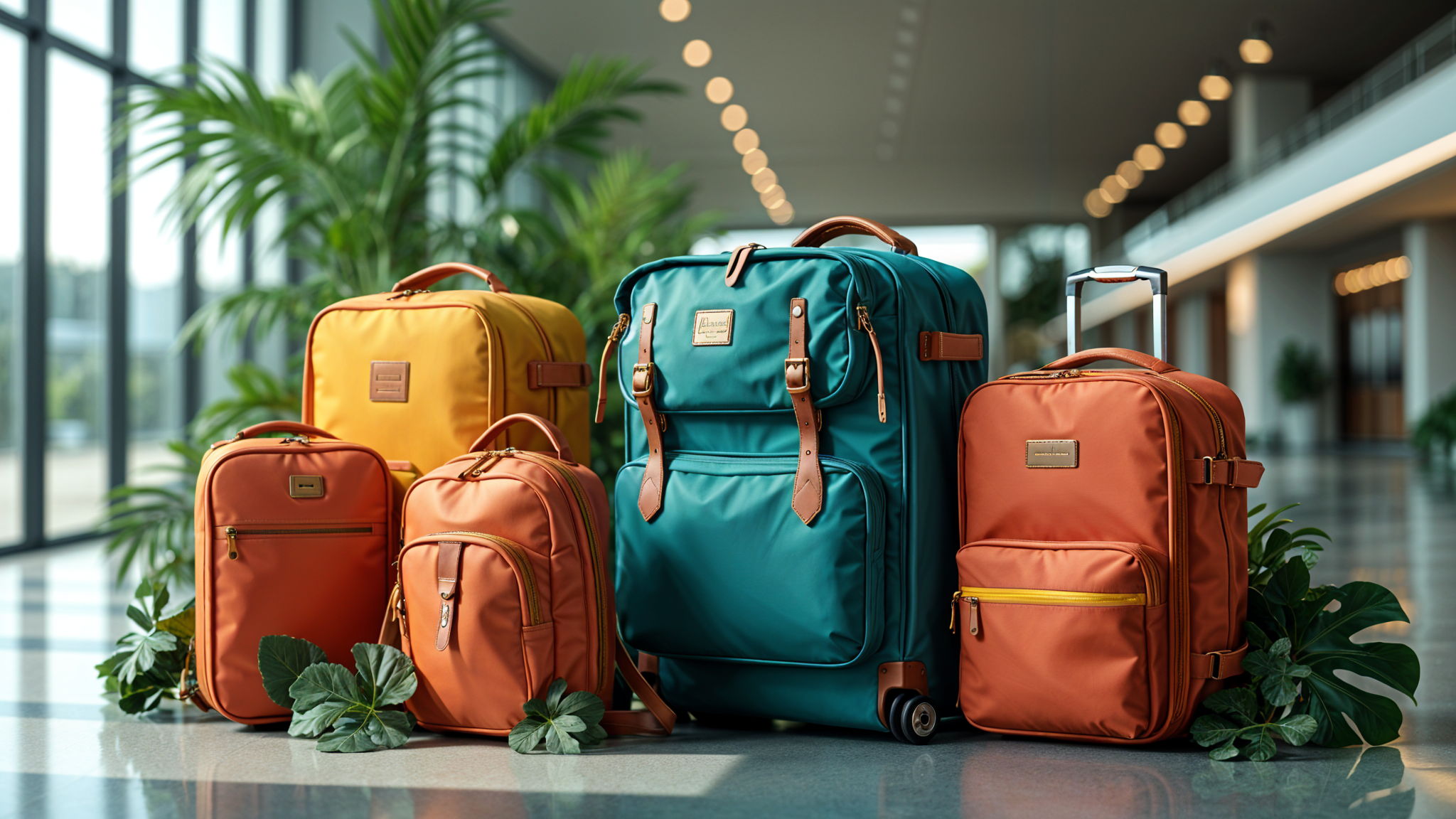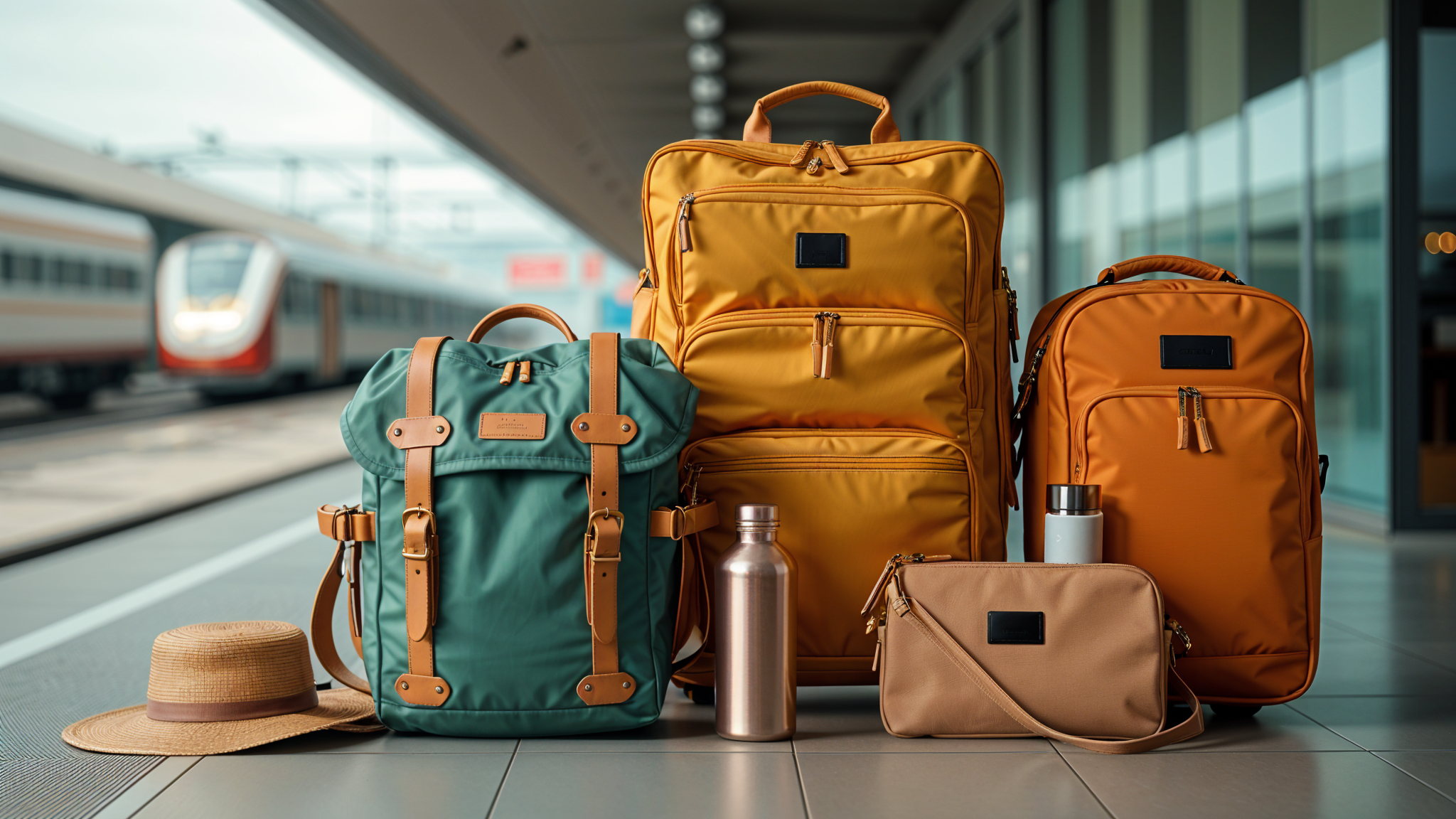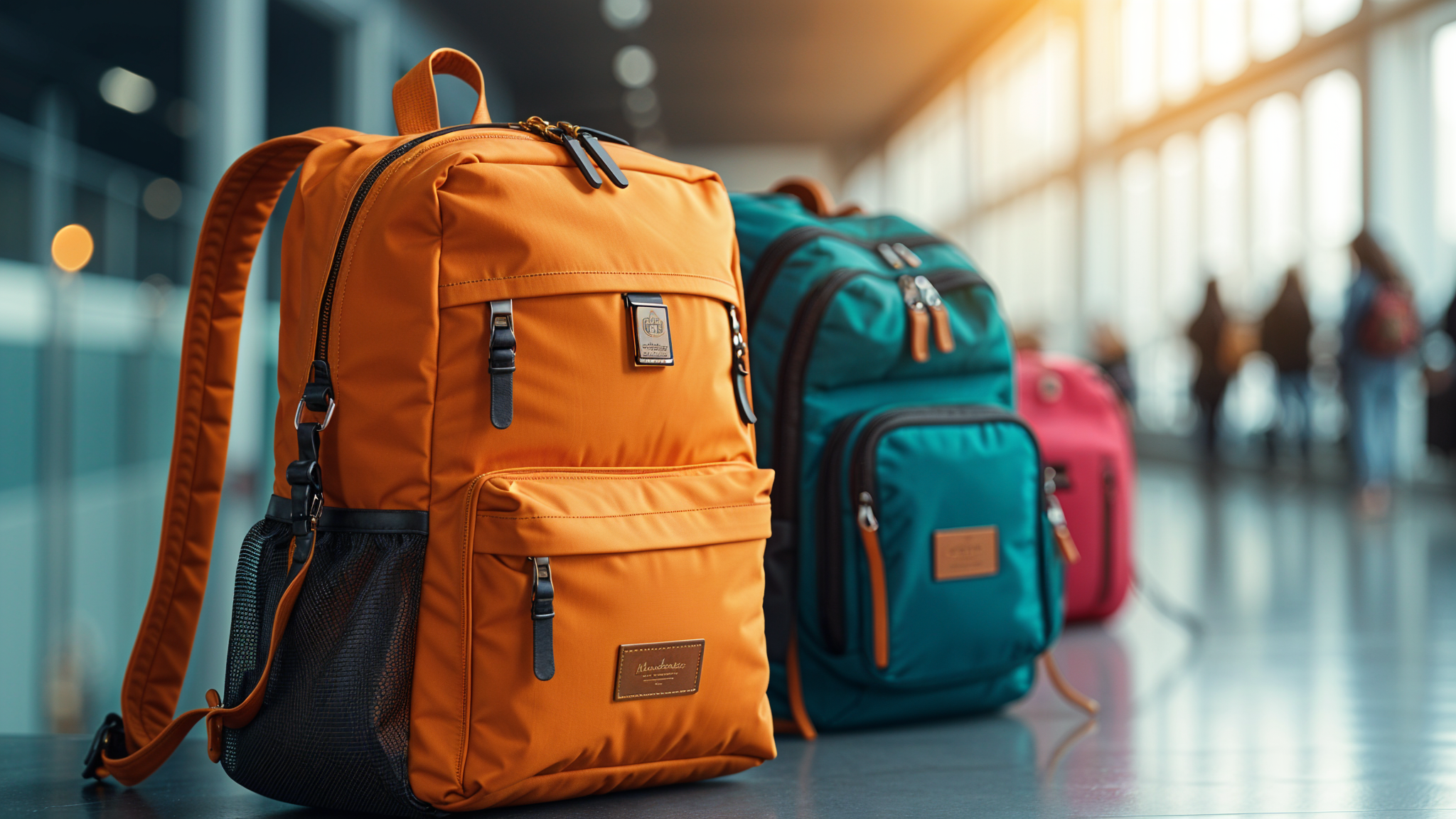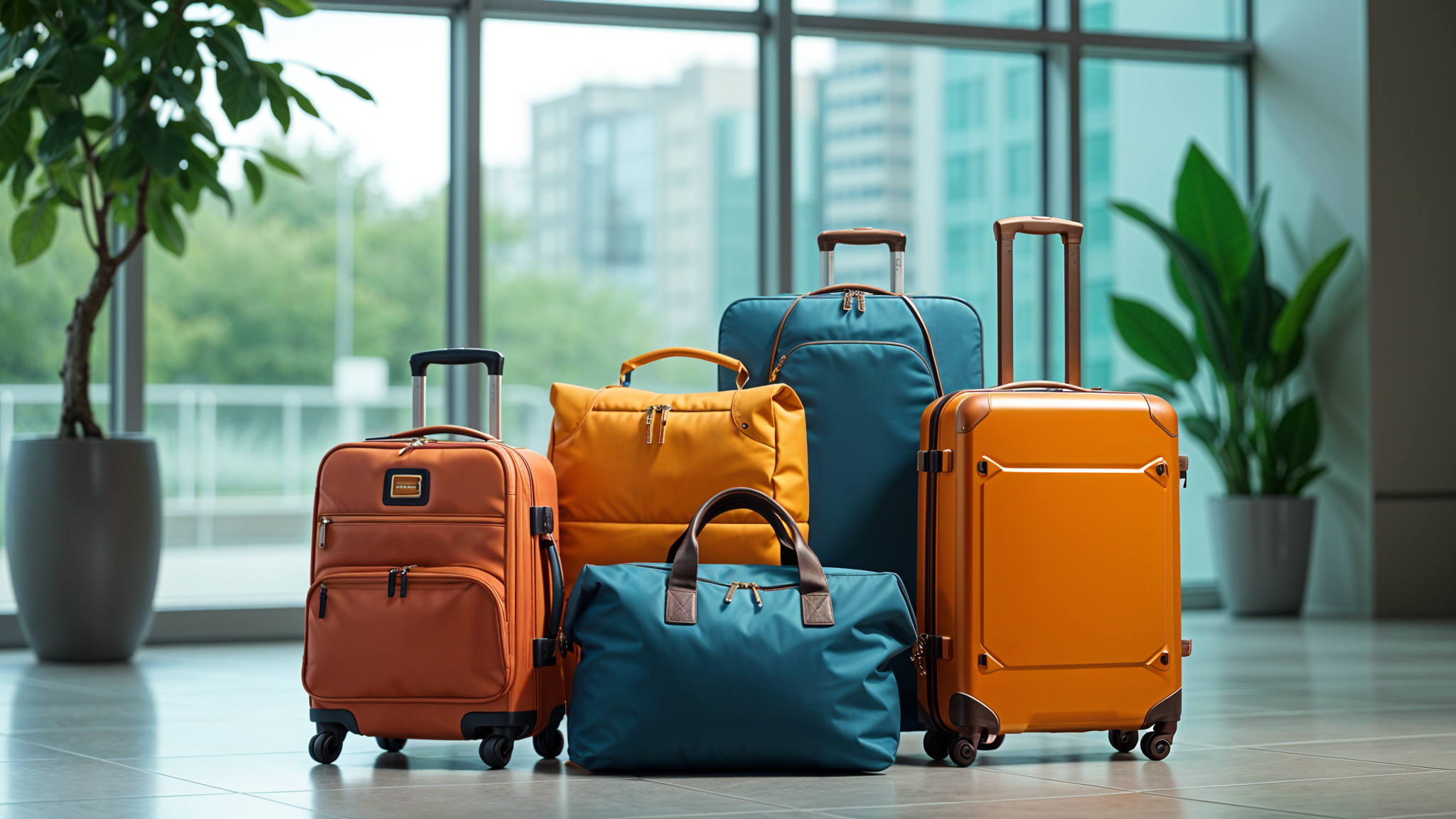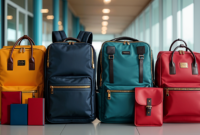Have you ever considered the impact your travels have on the planet? As our world becomes increasingly interconnected, the desire to explore new cultures and landscapes has never been stronger. However, with this growing passion for travel comes a responsibility to minimize our environmental footprint and contribute positively to the destinations we visit. This is where sustainable travel comes in. Sustainable travel is a conscious approach to exploring the world that seeks to minimize negative environmental and social impacts while maximizing positive contributions. It’s about making choices that preserve natural resources, support local communities, and respect cultural heritage.
More and more, travelers are becoming aware of the environmental and social consequences of conventional tourism. From carbon emissions associated with air travel to the plastic waste generated in popular destinations, the impact of our wanderlust can be significant. Fortunately, there’s a growing movement towards responsible travel, with eco-conscious travelers seeking ways to make their journeys more sustainable.
One key element in reducing the environmental impact of travel is choosing sustainable travel gear, particularly your luggage. Sustainable travel bags are designed and produced with the environment in mind, considering the entire product lifecycle from material sourcing to end-of-life disposal. By opting for sustainable travel bags, you can significantly reduce your contribution to waste, pollution, and resource depletion.
The benefits of using sustainable travel bags are numerous, ranging from reduced waste and lower carbon emissions to supporting ethical production practices and empowering local communities. These bags are often crafted from recycled or renewable materials, minimizing the demand for virgin resources and diverting waste from landfills. Moreover, sustainable travel bag companies frequently prioritize fair labor practices and safe working conditions, ensuring that your purchase contributes to a more just and equitable world.
Embracing sustainable travel also means considering your carbon footprint. By packing light and choosing luggage made from lightweight, eco-friendly materials, you can reduce the weight carried by airplanes and minimize fuel consumption. Every conscious choice, no matter how small, contributes to a more sustainable future for travel. In the following sections, we’ll delve deeper into the world of sustainable travel bags, exploring their benefits, the materials they’re made from, and how you can choose the perfect one for your next adventure.
What are Sustainable Travel Bags?
Sustainable travel bags are more than just luggage; they represent a conscious choice to minimize your environmental impact while exploring the world. These bags are designed and manufactured with a focus on using eco-friendly materials, ethical production processes, and minimizing waste throughout their lifecycle. When you choose a sustainable travel bag, you’re opting for a product that prioritizes the planet and the people involved in its creation.
Materials Matter: A core element of sustainable travel bags is the use of materials that have a lower environmental footprint compared to conventional options. This includes a variety of innovative and responsibly sourced materials:
- Recycled Materials: Transforming waste into resources is a key principle of sustainability. Recycled materials like recycled PET (often derived from plastic bottles), recycled polyester, and recycled nylon are commonly used in sustainable travel bags. These materials help divert waste from landfills, reduce the demand for virgin resources, and conserve energy during production.
- Organic Cotton: Choosing organic cotton over conventionally grown cotton significantly reduces the environmental impact of your bag. Organic cotton is cultivated without harmful synthetic pesticides and fertilizers, minimizing soil and water contamination.
- Hemp: Hemp is a natural fiber known for its strength, durability, and rapid growth. It requires minimal water and pesticides to cultivate, making it a highly sustainable option for travel bags.
- Upcycled Materials: Some brands take sustainability a step further by incorporating upcycled materials into their bags. This involves repurposing existing materials, like discarded fabrics or sails, giving them a new life and reducing the need for new resources.
Certifications and Labels: Navigating the world of sustainable products can be challenging, with various terms like “eco-friendly” and “green” being used without clear definitions. To ensure you’re choosing truly sustainable options, look for certifications and labels that provide third-party verification of a product’s environmental and social credentials. Some key certifications to look for include:
- Global Recycled Standard (GRS): This certification verifies the recycled content of a product and ensures responsible social and environmental practices throughout the production process.
- Bluesign: The Bluesign system focuses on minimizing the environmental impact of textile production, ensuring responsible use of resources and chemicals throughout the supply chain.
- Fair Trade: The Fair Trade certification guarantees that workers involved in the production process are paid fair wages, work in safe conditions, and have their rights protected.
Durability and Longevity: A crucial aspect of sustainability is reducing the need for frequent replacements. Sustainable travel bags are often designed with durability in mind, using high-quality materials and construction techniques to ensure they can withstand the rigors of travel for years to come. Investing in a durable, well-made bag might have a higher upfront cost, but it will ultimately save you money and reduce waste in the long run.
Embracing Circularity: The concept of circularity is gaining traction in the sustainable fashion industry. It involves designing products for longevity, reusability, and recyclability, minimizing waste and maximizing the use of resources. Some sustainable travel bag brands are implementing circularity through initiatives like take-back programs, where customers can return old bags for recycling or repurposing, and by incorporating recycled materials into their production processes.
By choosing a sustainable travel bag, you’re not only making a responsible choice for the environment but also supporting brands that prioritize ethical production practices and contribute to a more sustainable future for the travel industry.
7 Benefits of Sustainable Travel Bags
Choosing sustainable luggage is more than just a trend; it’s a powerful way to align your travel choices with your values. Opting for eco-friendly bags offers a multitude of benefits that positively impact the environment, support ethical practices, and even enhance your travel experience.
### Reduced Environmental Impact
Sustainable travel bags are designed to minimize their environmental footprint throughout their entire lifecycle. By utilizing recycled materials like recycled PET (from plastic bottles) or ocean-bound plastic, these bags help divert waste from landfills and reduce the demand for virgin resources. Natural materials like organic cotton and hemp require less water and fewer pesticides to grow compared to conventional options, further lessening the environmental burden. Brands like Patagonia and Everlane are leading the way in incorporating recycled materials into their luggage lines, showcasing the potential for a more sustainable travel industry.
### Durability and Longevity
Investing in a well-made sustainable travel bag means investing in a product that’s built to last. Durable materials like ripstop nylon, recycled polyester, and canvas, combined with reinforced stitching and high-quality zippers, ensure that these bags can withstand the rigors of travel for years to come. This longevity translates to fewer replacements, ultimately reducing waste and saving you money in the long run. Some brands, like Patagonia, even offer repair services, further extending the lifespan of their products and embracing a circular economy model.
### Ethical Production
Sustainable travel bag companies often prioritize ethical and fair labor practices throughout their supply chains. This means ensuring fair wages, safe working conditions, and respect for workers’ rights. By supporting brands that hold certifications like Fair Trade, you can contribute to a more just and equitable fashion industry. Everlane, for example, is known for its commitment to radical transparency, providing detailed information about its factories and the people who make its products.
### Support for Local Communities
Some sustainable travel bag companies go beyond ethical production and actively support local communities. This can involve sourcing materials locally, creating employment opportunities in underserved areas, or partnering with non-profit organizations to give back. For instance, Tentree plants 10 trees for every item purchased, contributing to reforestation efforts around the world. By choosing these brands, you’re not only getting a great travel bag but also supporting positive social impact.
### Reduced Carbon Footprint
Sustainable travel bags can contribute to a lower carbon footprint in several ways. Firstly, the production of recycled and natural materials often requires less energy compared to conventional materials, resulting in fewer greenhouse gas emissions. Secondly, choosing locally made or responsibly shipped luggage can minimize transportation distances and associated emissions. Brands like Rothy’s are committed to reducing their carbon footprint through initiatives like carbon-neutral shipping and the use of recycled ocean plastic.
### Animal Welfare
Many sustainable travel bags are made with vegan and cruelty-free materials, eliminating the need for animal-derived products like leather. Choosing these bags aligns with a commitment to animal welfare and supports a more compassionate approach to fashion. Brands like Hempy’s and Rawganique offer a range of stylish and durable bags made from hemp, a highly sustainable and animal-friendly material.
### Promoting Responsible Tourism
Using sustainable travel bags is a visible way to demonstrate your commitment to responsible tourism. It sends a message that you care about the environment and the communities you visit. By making conscious choices about your travel gear, you can inspire others to do the same and contribute to a more sustainable future for the travel industry.
### Personal Health Benefits
Some sustainable materials are naturally free from harmful chemicals often found in conventional luggage, such as phthalates and PVC. Choosing bags made from organic cotton, hemp, or recycled materials that have been certified to be free of harmful substances can potentially benefit your health and reduce your exposure to potentially toxic chemicals.
Eco-Friendly Materials
Conventional luggage production often relies on resource-intensive processes and materials that can have a significant environmental impact. The extraction and processing of virgin materials like petroleum-based plastics contribute to pollution, greenhouse gas emissions, and resource depletion. Additionally, the manufacturing processes often involve the use of harmful chemicals that can pollute waterways and harm ecosystems.
Choosing luggage made from recycled materials offers a powerful way to reduce your environmental footprint. Recycled materials, such as recycled PET bottles and ocean-bound plastic, divert waste from landfills and oceans, reducing pollution and conserving resources. For instance, it takes approximately 70% less energy to produce recycled PET compared to virgin PET (Spiridonova, 2022). By choosing a bag made from recycled materials, you’re actively contributing to a cleaner planet and reducing the demand for new resources.
Several brands are leading the way in sustainable luggage innovation by incorporating recycled materials into their designs. Rothy’s, known for its stylish and comfortable shoes, has expanded into the travel bag market with its collection of bags made from recycled plastic water bottles. They transform single-use plastic bottles into a durable, machine-washable thread that is then knitted into their signature bags. Similarly, Freitag specializes in creating unique and durable bags from repurposed truck tarpaulins, bicycle inner tubes, and other recycled materials, showcasing the potential for transforming waste into stylish and functional products.
The use of recycled materials in luggage production contributes to a circular economy, a system that aims to minimize waste and maximize the use of resources. By transforming waste materials into valuable products, we can reduce the need for virgin materials and create a more sustainable production and consumption cycle. Brands like Patagonia and The North Face are actively incorporating recycled materials into their luggage lines, demonstrating their commitment to reducing their environmental impact and promoting a circular economy. Choosing luggage made from recycled materials is a step towards a more sustainable future for the travel industry, where waste is minimized and resources are valued and reused.
Durability and Longevity
When you invest in a sustainable travel bag, you’re making a choice that goes beyond a single trip. Durability is a cornerstone of sustainability, as a bag that lasts longer significantly reduces the need for replacements, minimizing waste and your overall environmental impact. Choosing luggage built to withstand the rigors of travel is essential for the eco-conscious traveler.
Several key features contribute to a travel bag’s durability. Look for bags with reinforced stitching, ensuring that seams can withstand the stress of packing and handling. High-quality zippers are also crucial, as they are often the first point of failure in a bag. Consider bags with water-resistant materials or coatings, like the Patagonia Black Hole Duffel, which protect your belongings from unexpected weather conditions.
The choice of materials also plays a significant role in a bag’s longevity. Recycled nylon, often sourced from discarded plastic bottles or fishing nets, is known for its strength and resilience. Similarly, 100% recycled polyester offers excellent durability and is a great eco-friendly option. Canvas, a natural fiber, is another durable choice, especially when treated for water resistance. Hemp fiber, recognized as one of the strongest and most regenerative materials available, offers exceptional strength and durability for travel bags.
While sustainable travel bags might have a higher upfront cost compared to conventional options, their durability translates to long-term savings. By investing in a well-made bag, you can avoid the expense and waste associated with frequent replacements. Brands like Osprey, with their “All Mighty Guarantee,” demonstrate a commitment to durability by offering repairs or replacements for any damage or defect, ensuring your bag’s longevity and minimizing its environmental impact.
Ethical Production
When choosing sustainable luggage, it’s essential to consider not only the environmental impact of the materials but also the ethical implications of the production process. Ethical production ensures that the people involved in creating your travel bag are treated fairly and work in safe and respectful conditions. By supporting brands that prioritize ethical production, you’re contributing to a more just and equitable fashion industry.
Ethical and fair labor practices are fundamental to sustainable production. This means ensuring that workers receive fair wages, work reasonable hours, and have access to safe and healthy working environments. It also involves respecting their right to organize and collectively bargain. Brands committed to ethical production often go beyond minimum legal requirements to create positive working conditions that empower their employees.
Certifications like Fair Trade provide a valuable framework for ensuring ethical production standards are met. Fair Trade certification guarantees that workers involved in the production process are paid fair wages, work in safe conditions, and have their rights protected. By choosing Fair Trade certified products, you can be confident that your purchase supports ethical and sustainable practices.
Transparency is another crucial aspect of ethical production. Brands that are transparent about their supply chains allow you to trace the journey of your travel bag from raw materials to finished product. This transparency enables you to make informed decisions about the brands you support and ensures accountability throughout the production process. Brands like Patagonia and Everlane are known for their commitment to transparency, providing detailed information about their factories and the people who make their products.
As a conscious consumer, you have the power to drive positive change in the fashion industry. By researching brands and supporting those that prioritize ethical production and transparency, you can encourage other companies to adopt similar practices. Look for certifications like Fair Trade, GRS (Global Recycled Standard), or bluesign, which indicate a commitment to sustainability and ethical standards. Ultimately, your purchasing decisions can contribute to a more sustainable and equitable future for the travel industry and the people who make it possible.
Reduced Carbon Footprint
As a traveler, your carbon footprint—the total amount of greenhouse gases generated by your activities—is significantly impacted by your travel choices, including the luggage you choose. Sustainable luggage offers a powerful way to reduce your impact and contribute to a more environmentally responsible travel experience.
Choosing sustainable luggage starts with understanding the materials. Conventional luggage production often relies heavily on petroleum-based materials, the extraction and processing of which release significant amounts of greenhouse gases. Sustainable alternatives, such as recycled PET (made from plastic bottles), recycled nylon, organic cotton, and hemp fiber, require less energy to produce and have a lower carbon footprint. For example, producing recycled PET requires approximately 70% less energy compared to virgin PET (Spiridonova, 2022). Furthermore, opting for durable, well-made sustainable bags reduces the need for frequent replacements, minimizing the overall environmental impact associated with manufacturing and disposal.
Transportation also plays a significant role in a product’s carbon footprint. The distance your luggage travels from the factory to your doorstep contributes to emissions from shipping. Choosing luggage made locally or from brands that prioritize responsible shipping methods can help minimize these emissions. Some brands are committed to carbon-neutral shipping, offsetting the emissions generated during transportation through investments in projects that reduce greenhouse gases.
Many sustainable luggage brands are actively taking steps to reduce their overall carbon footprint. Patagonia, known for its commitment to environmental responsibility, utilizes recycled materials in its luggage lines and implements sustainable practices throughout its supply chain. Tentree, a brand dedicated to reforestation, plants 10 trees for every item purchased, helping to offset carbon emissions and restore ecosystems. Organizations like Away participate in carbon offset programs to further minimize their environmental impact.
When choosing your next travel companion, consider the entire lifecycle of the luggage. Opting for durable, sustainable bags from brands committed to reducing their carbon footprint is a powerful way to align your travel choices with your values. By making conscious purchasing decisions, you can contribute to a more sustainable future for the travel industry and minimize your impact on the planet.
Choosing the Right Sustainable Travel Bag
Selecting the perfect sustainable travel bag is a crucial step in minimizing your environmental impact while exploring the world. With a plethora of options available, it’s essential to consider your individual needs and priorities to make an informed decision. This guide will walk you through the key factors to consider when choosing a travel companion that aligns with your values and enhances your travel experience.
Size and Travel Style:
The first step is to determine the appropriate size and type of bag based on your travel style and destination. For short weekend trips or minimalist packers, a compact weekender bag or a versatile travel tote might suffice. Brands like Lo & Sons offer stylish and functional totes like the Catalina Deluxe, designed for both travel and everyday use. If you’re embarking on longer journeys or require more packing space, consider a larger duffel bag like Patagonia’s Black Hole Duffel, known for its durability and spaciousness, or a sustainable suitcase from Rothy’s, crafted from recycled materials. Adventure travelers might prefer a travel backpack designed for carrying gear comfortably, with brands like Osprey offering sustainable options.
Prioritizing Sustainable Materials:
When choosing a sustainable travel bag, prioritize durable and eco-friendly materials. Recycled nylon, often made from discarded fishing nets or plastic bottles, is a popular choice due to its strength, water resistance, and lightweight nature. Patagonia’s Black Hole line extensively utilizes recycled nylon. Organic cotton, grown without harmful pesticides and fertilizers, is another excellent option, offered by brands like Eco Bags and Terra Thread. Hemp, a highly sustainable and durable natural fiber, is showcased in bags from Hempy’s and Rawganique. By opting for these materials, you’re actively reducing your environmental footprint and supporting a more sustainable fashion industry.
Functionality for Seamless Travel:
Look for features that enhance the functionality of your travel bag. Multiple compartments and pockets help keep your belongings organized, while expandable storage provides flexibility for varying packing needs. Comfortable and adjustable straps are essential, especially for backpacks and larger bags. Consider features like water-resistant coatings or compartments for wet items, particularly if you’re planning outdoor adventures. Brands like Timbuk2 offer a range of travel bags with thoughtful design features that cater to different travel styles.
Easy Care for Long-Term Use:
Choose a bag that is easy to clean and maintain to ensure its longevity. Machine-washable bags, like those offered by Rothy’s, are particularly convenient. Consider materials that are stain-resistant and easy to wipe clean. Proper care and maintenance will extend the lifespan of your bag, reducing the need for replacements and minimizing waste.
Style that Reflects Your Personality:
Sustainable travel bags come in a variety of styles and aesthetics to suit different preferences. Whether you prefer a classic duffel, a sleek tote, or a modern backpack, you can find a sustainable option that aligns with your personal style. Brands like Nisolo and Veja offer stylish and ethically produced travel bags that blend fashion and sustainability.
Researching Brands Committed to Sustainability:
Take the time to research brands known for their commitment to sustainability and ethical practices. Patagonia, a leader in the outdoor industry, is renowned for its environmental initiatives and transparent supply chain. Everlane, with its ReNew collection made from recycled materials, focuses on radical transparency and ethical production. Rothy’s, known for its innovative use of recycled plastic, is a pioneer in sustainable footwear and accessories. By supporting these brands, you’re contributing to a more responsible and ethical fashion industry.
Certifications for Assurance:
Look for certifications that validate a brand’s sustainability claims. The Global Recycled Standard (GRS) verifies the recycled content of a product and ensures responsible social and environmental practices throughout the production process. The bluesign system focuses on minimizing the environmental impact of textile production, ensuring responsible use of resources and chemicals throughout the supply chain. Brands like Patagonia and The North Face utilize the bluesign certification in their production processes. Fair Trade certification guarantees that workers involved in the production process are paid fair wages and work in safe conditions.
Customer Reviews for Real-World Insights:
Before making a purchase, read customer reviews to gain insights into the quality, durability, and overall performance of the bag. Reviews can provide valuable information about the bag’s features, pros and cons, and how it holds up over time. Websites like REI and Amazon offer customer reviews that can help you make an informed decision.
Price and Value for Long-Term Investment:
Consider the price of the bag in relation to its features, durability, and sustainability credentials. While sustainable bags might have a higher upfront cost compared to conventional options, their longevity and reduced environmental impact can offer better value in the long run. Investing in a well-made, durable bag will save you money and reduce waste in the long term.
Brands Leading the Way in Sustainable Travel
The sustainable travel bag market is experiencing a surge in innovation, with numerous brands stepping up to offer eco-conscious travelers stylish and durable luggage options that minimize their environmental impact. Let’s explore some of the brands leading the way in this movement:
Patagonia: A long-standing champion of environmental responsibility, Patagonia is renowned for its commitment to using recycled materials and promoting fair labor practices. Their travel bags, like the Heavy-Duty Wheeled Duffel, are crafted from 100% recycled body fabric, lining, and webbing, minimizing reliance on virgin resources. Patagonia also offers repair services and DIY repair guides, extending the lifespan of their products and reducing waste.
Everlane: Known for its radical transparency and commitment to ethical production, Everlane’s ReNew collection features travel bags made entirely from recycled plastic bottles. Their Transit Bag, for example, is a sleek and versatile option made from 100% recycled polyester, diverting plastic waste from landfills and reducing reliance on petroleum-based materials.
Rothy’s: Rothy’s has gained recognition for its innovative use of recycled materials, particularly recycled plastic water bottles, to create stylish and comfortable footwear and accessories. Their travel bags, like The Weekender and The Overnighter, are consciously crafted using recycled materials and are machine-washable, making them both sustainable and practical.
Tentree: Tentree is a brand with a mission to plant 10 trees for every item purchased. They utilize recycled plastics and hemp to create a range of functional and eco-friendly travel bags, including backpacks, duffel bags, and totes. Their commitment to reforestation helps offset carbon emissions and restore ecosystems.
Samsonite: Even established luggage brands like Samsonite are embracing sustainability. Their ECO-Nu collection features sleek and modern designs made from 100% recycled polyester, catering to frequent travelers who prioritize eco-conscious choices without compromising on style or functionality.
These brands are not only utilizing recycled materials but also exploring innovative alternatives. Piñatex, a leather-like material made from pineapple leaf fibers, is gaining traction in the sustainable fashion industry. Brands like Malai and Maravillas Bags are using Piñatex to create eco-friendly and stylish travel bags.
The positive impact of these brands extends beyond just reducing waste and conserving resources. They prioritize ethical labor practices, ensuring fair wages and safe working conditions for the people involved in their supply chains. Many of these brands also engage in community giving, donating profits to local charities and environmental initiatives.
A customer reviewing Patagonia’s wheeled duffel praised its durability, stating, “This bag is built like a tank. It rolls smoothly, the handle is sturdy, and it’s the perfect size for longer trips without encouraging me to overpack.” This highlights the commitment of sustainable luggage brands to creating products that are not only eco-friendly but also built to last, reducing the need for frequent replacements and minimizing waste.
By choosing travel bags from these brands, you’re not only making a responsible choice for the environment but also supporting companies that prioritize ethical production, innovation, and positive social impact.
The Future of Sustainable Travel
As you’ve discovered, choosing sustainable travel bags offers a multitude of benefits, both for the environment and for you as a traveler. By opting for bags made from recycled or natural materials, you significantly reduce your carbon footprint, minimize waste, and support ethical production practices. These bags are often designed for durability and longevity, saving you money and resources in the long run. They also contribute to a healthier planet by reducing reliance on petroleum-based materials and avoiding harmful chemicals.
Your purchasing decisions have a ripple effect. By consciously choosing sustainable travel bags, you send a powerful message to the industry, encouraging more brands to embrace eco-friendly practices and prioritize ethical production. The growing demand for sustainable products is driving innovation and creating a more responsible and transparent travel industry.
But the journey towards sustainable travel extends far beyond your luggage. You can further minimize your impact by packing light and efficiently, choosing eco-friendly accommodations, supporting local businesses, and engaging in sustainable tourism activities that respect the environment and local communities. Consider bringing your own reusable water bottle, coffee cup, and cutlery to reduce reliance on single-use plastics.
Extending the lifespan of your travel bag is another crucial step. Proper care and maintenance, such as cleaning your bag regularly and storing it appropriately, can significantly increase its longevity. Many sustainable brands offer repair services, allowing you to fix minor damages instead of replacing the entire bag. By embracing a “repair, don’t replace” mentality, you further reduce waste and conserve resources.
For those seeking to delve deeper into the world of sustainable travel, numerous resources are available. Organizations like the Sustainable Travel International and the Global Sustainable Tourism Council offer valuable information and guidance on responsible travel practices. Online platforms like Good On You provide ratings and reviews of ethical and sustainable fashion brands, including luggage companies.
By embracing sustainable travel practices and making informed purchasing decisions, you become an advocate for a more responsible and conscious approach to exploring the world. Every small step you take contributes to a larger movement towards a future where travel and environmental stewardship go hand in hand.

